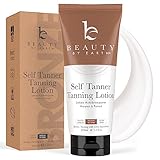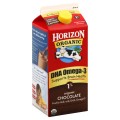Sunless Tanning: Is DHA Spray Tanning Safer?

For years we have been told to stay out of the sun and tanning beds. The sun rays and the tanning beds can age us faster and can cause skin cancer. So what do the fair, pasty people of the world do? Risk skin cancer by sunbathing or going to the tanning salon, or choose an alternative safer way?
Since the 1950’s we have had sunless tanning lotions. Who over the age of 40 hasn’t traded their naturally pale white skin for that tarnished, orange QT color that seeps into the creases of your hands, feet, ankles, knees and elbows? Once you discovered your new skin tone is not everything you had hoped for, it is too late to wash it off. It has to wear off. Yep, those are some "good" memories. The golden years, or should I say the orange years?
It seems that society places so much on appearances. I love it when I see someone with beautiful, milky white skin. They do not look like they have aged at all. It is the rest of us who were not blessed with that beautiful skin who resort to alternative forms of reaching that golden tan, be it sunbathing, tanning beds, sunless lotions, or spray tans.

What Is the Active Ingredient in Self-Tanners?
The active ingredient in self-tanners, be they lotions or sprays, is called DHA. DHA is a color additive chemical called dihydroxyacetone, not to be confused with the vitamin DHA which consists of Omega 3 fatty acid. When the DHA comes in contact with the amino acids on the surface of the skin, it darkens the skin temporarily.
Today manufacturers and history have taught us how to effectively use self-tanners so the DHA can subtly blend in with the skin’s amino acids and turns into a golden “sun kissed” tan.
Is the DHA Chemical in Self-Tanners Safe?
In 1977 the FDA deemed self-tanning lotions with DHA safe for external use. The FDA has not revisited their original claim to the safe use of DHA. Today, DHA has been studied in labs. Since spray tanning has become so popular, especially with Hollywood not willing to go for the natural skin tone yet not daring to age their skin with the sun or tanning booths.
Tests on DHA for external use prove safe but now that we have spray tans, we need to think about internal use, too. Internal? Yes, when inhaled or absorbed through eyes, ears, mouth, or nose, DHA, in lab testing, has been linked to changes in DNA that can possibly cause cancer and birth defects once it enters the blood stream through the lungs. It causes a genetic mutation of the cells when inhaled.
How Can We Protect Ourselves from the DHA Chemical in Spray Tanners?
Most tanning salons do not provide protective-wear for the face area and are probably not aware of risks found in labs today, nor are most consumers who buy over-the-counter self-tanning sprays. The DHA chemical is easily absorbed in the thin skin of your eyes and lips. It can also go into your ears or be inhaled through your mouth or nose. Either do not use the self-tanning spray on your facial area, kind of like how we protect ourselves from the sun or the tanning bed rays, or wear protective covering for each opening. Many fear “raccoon eyes” or white areas standing out from the tan, but you can use a little make-up to cover up those small areas.
Should We Stop Spray Tanning?
Of course, in the lab tests, the DHA is tested over and over. It is not FDA regulated, but there are many things that are FDA regulated that, if abused, are not good for us. If you have a special occasion, such as a prom or a wedding, limited use of spray tanning throughout the year should be safe. If you feel you must have a beautiful, golden tan all year long or even six months out of the year, you might be pushing the envelope. Too much of any chemical in our system is not good for us. Limited moderation should be considered or maybe choosing one of the popular self-tanning lotions would be safer; you may need to plan the timing of your "tan" for your special occasion if using the self-tanning lotions.
Further Information:
© 2012 Susan Holland


![Podz Goggles [1 Pair Random Colors] Keychain Tanning Bed Eye Wear - Tanning Goggles 2pc- No Nose Bridge, No Tan Lines](https://m.media-amazon.com/images/I/41y4w63cyjL._SL160_.jpg)




